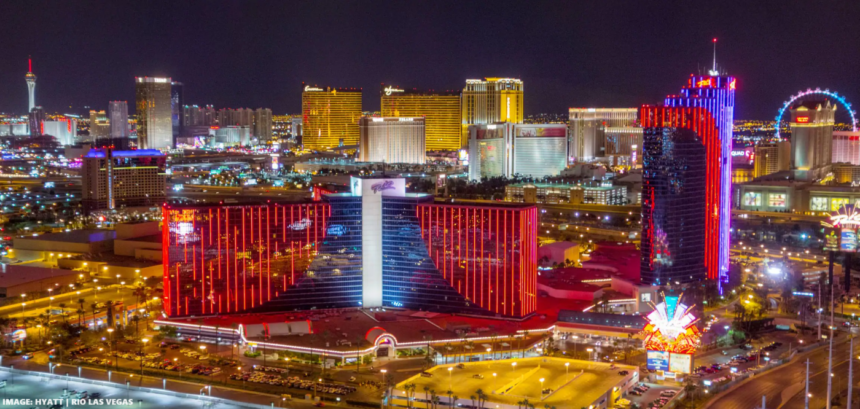The U.S. Federal Trade Commission has worked on new regulations to do away with “junk fees” for the last couple of years and this effort had bipartisan support from both political ends – now the new rule stands.

As soon as the new law kicks in, it will prohibit bait-and-switch pricing and other tactics used to hide total prices and bury junk fees in the live-event ticketing and short-term lodging industries (hotels) which includes resort/destination fees.
Sellers of relevant products and services will soon be required to display the full price a customer has to pay and can no longer opaque the true cost, just for the customer to be surprised by massive fees when it’s time to pay the piper.
According to the FTC website the new regulation will be active 90 days after publication in the federal register.
The Federal Trade Commission today announced a final Junk Fees Rule to prohibit bait-and-switch pricing and other tactics used to hide total prices and bury junk fees in the live-event ticketing and short-term lodging industries. These unfair and deceptive pricing practices harm consumers and undercut honest businesses.
“People deserve to know up-front what they’re being asked to pay—without worrying that they’ll later be saddled with mysterious fees that they haven’t budgeted for and can’t avoid,” said FTC Chair Lina M. Khan. “The FTC’s rule will put an end to junk fees around live event tickets, hotels, and vacation rentals, saving Americans billions of dollars and millions of hours in wasted time. I urge enforcers to continue cracking down on these unlawful fees and encourage state and federal policymakers to build on this success with legislation that bans unfair and deceptive junk fees across the economy.”
The Junk Fees Rule will ensure that pricing information is presented in a timely, transparent, and truthful way to consumers of live-event tickets and short-term lodging, two industries whose pricing practices the Commission has studied in particular. Consumers searching for hotels or vacation rentals or seats at a show or sporting event will no longer be surprised by a pile of “resort,” “convenience,” or “service” fees inflating the advertised price. By requiring up-front disclosure of total price including fees, the rule will make comparison shopping easier, resulting in savings for consumers and leveling the competitive playing field. …
Of course, the hospitality industry has caused its customers to become burdened with these scam fees wherever they look. In cities like Las Vegas and popular vacation spots, they call them “Resort Fees,” while in common cities such as Los Angeles and New York City, such scam charges are defined by the hotel companies as “destination fees.”
But don’t breathe a sigh of relief just yet because it’s unlikely that the costs disappear.
What does this mean in reality?
The final rule targets specific and widespread unfair and deceptive pricing practices in the sale of live-event tickets and short-term lodging, while preserving flexibility for businesses. It does not prohibit any type or amount of fee, nor does it prohibit any specific pricing strategies. Rather, it simply requires that businesses that advertise their pricing tell consumers the whole truth up-front about prices and fees.
To accomplish this, the Junk Fees Rule requires that businesses clearly and conspicuously disclose the true total price inclusive of all mandatory fees whenever they offer, display, or advertise any price of live-event tickets or short-term lodging. Businesses cannot misrepresent any fee or charge in any offer, display, or ad for live-event tickets or short-term lodging.
In addition, the rule requires businesses to display the total price more prominently than most other pricing information. This means that the most prominent price in an ad needs to be the all-in total price—truthful itemization and breakdowns are fine but should not overshadow what consumers want to know: the real total.
Finally, the rule requires businesses that exclude allowable fees up front to clearly and conspicuously disclose the nature, purpose, identity, and amount of those fees before consumers consent to pay. For instance, businesses that exclude shipping or taxes from the advertised price must clearly and conspicuously disclose those fees before the consumer enters their payment information. …
In other words, it’s a question of design and not a question of charging the fee itself. All that has to be done is that the total price, including itemization, must be presented prominently and that misrepresentation of any additional fees is now prohibited.
This is how it looks right now when you try to book a MGM hotel:

This would probably already suit the new requirements already, maybe with the exception of the calendar itself. There is not much, if any, difference and certainly not any reduction in price.
Unfortunately, many news sources and even the White House make this look more consequential than it will eventually be. Very little except design and display will actually change for American consumers. At least for literate people. This is what you call putting lipstick on a pig.
Here is an official document from the FTC:

To really make a difference, these fees should have been outlawed entirely. It would be easy to pass a law prohibiting tagging on any fees other than federal and state taxes, but of course, there is plenty of lobbying going around in Washington and real change for the good of the consumer is a very hard thing to achieve.
I’m glad that I still have my Hyatt Globalist status, which (for the time being) exempts members from paying Resort and Destination fees.
Conclusion
The U.S. Federal Trade Commission has developed the final version of a new regulation that will soon require providers of services and events to mask additional service fees and levies. All displays and advertising must show the total price and outline all additional fees prominently.
It’s important to understand that this does not prohibit resort fees, etc., but only requires upfront advertisement of the full price.
While any effort to clarify consumer information is welcome, this does little to improve the situation. The government and its agencies should ban these scam fees altogether!






